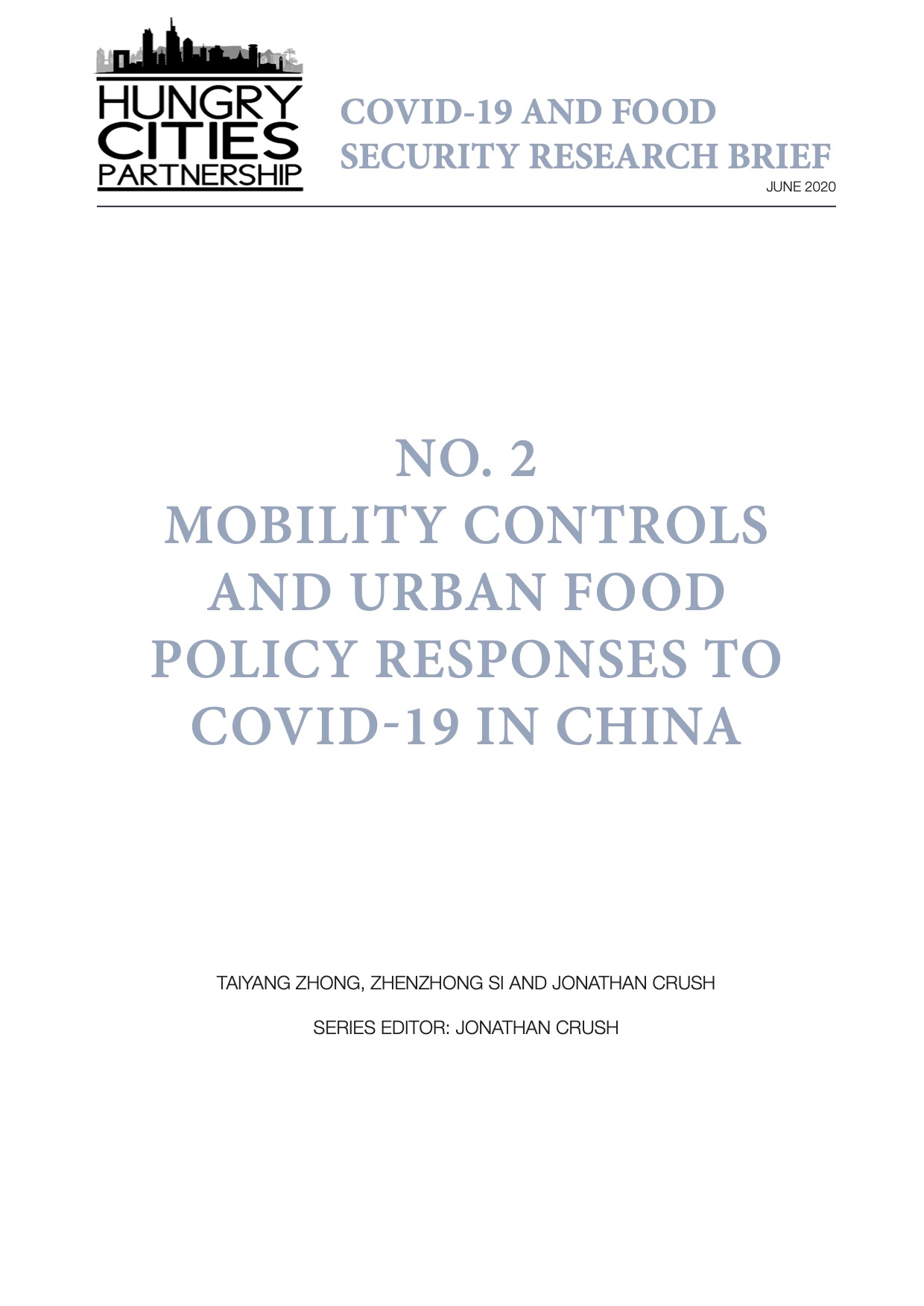At latest count (June 20, 2020), there were over 9 million confirmed cases of COVID-19 worldwide and over 450,000 deaths. While there has been an explosion of biomedical research on the pandemic, detailed empirical research investigating the impact of COVID-19 on food security is scarcer (Crush and Si 2000). This project is therefore examining the impacts on household food security in Chinese cities during the first wave of the pandemic. The main objectives are to: (a) investigate the immediate food security challenges resulting from China’s quarantine measures, unstable food supply, and fear of food shopping in two COVID-19-affected cities (Wuhan and Nanjing); (b) compare the food security situation in Nanjing following the COVID-19 outbreak with baseline data collected in 2015; (c) synthesize and assess policies to address food security challenges; and (d) promote effective mitigation measures by engaging local stakeholders. This research brief examines the nature of the policy response to COVID-19 with particular reference to the measures implemented in Wuhan and Nanjing. While these measures contained and eventually controlled the further spread of the virus within and from these cities, they had other indirect consequences including dramatic change to the functioning of urban food systems.

